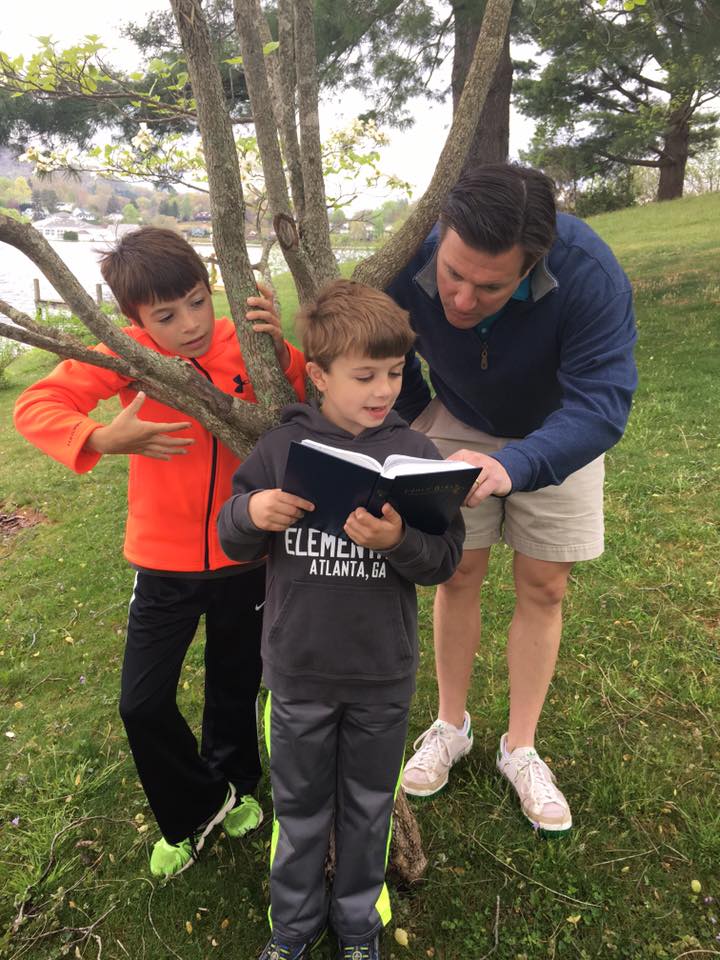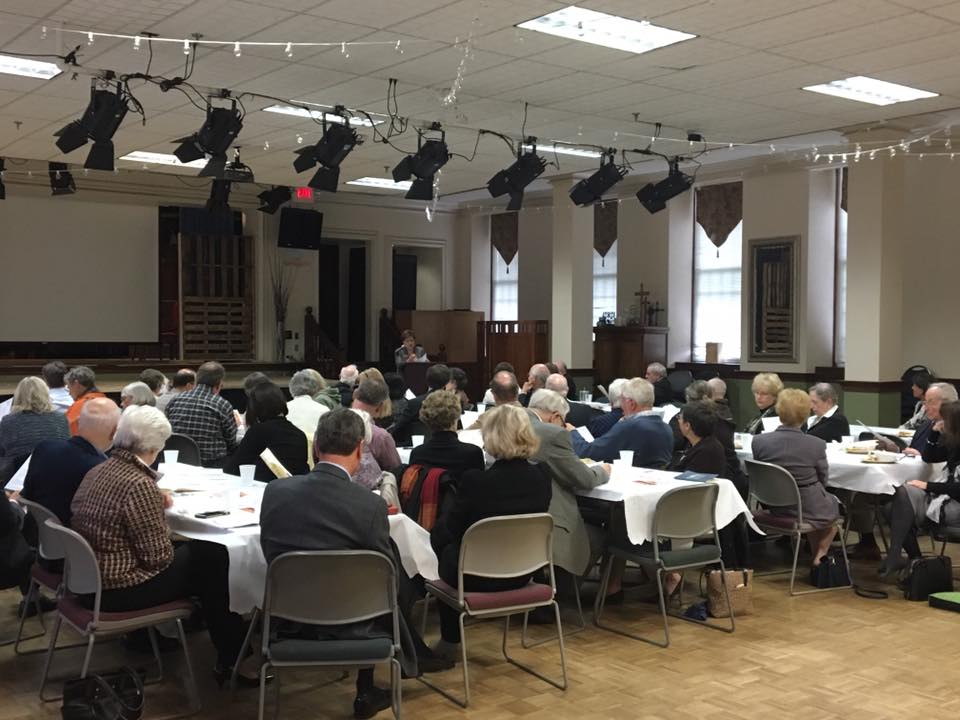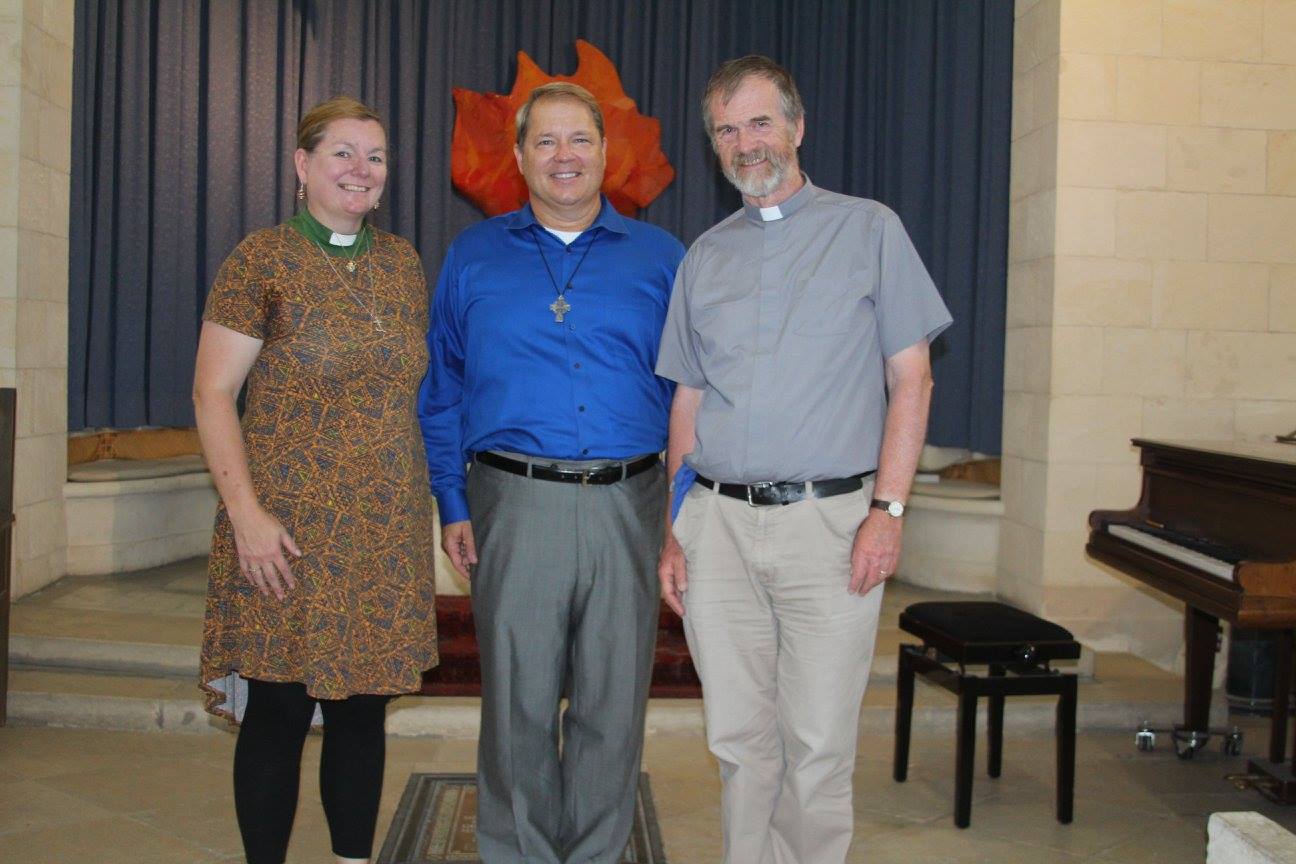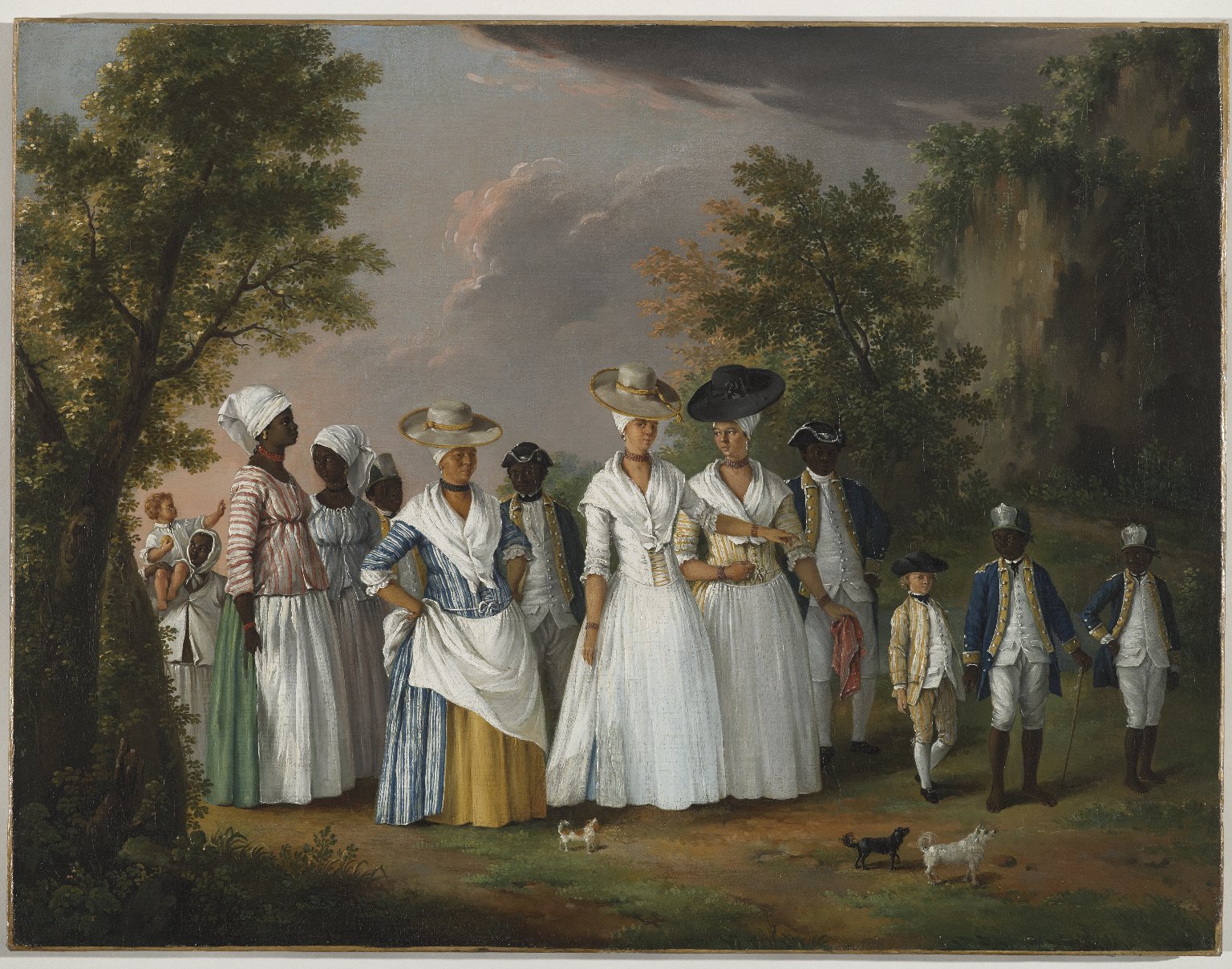Where else do teenage boys willfully get up at the crack of dawn on a Saturday morning to make dozens and dozens of pancakes to share?
Where else does a competitive game of Bible Pictionary evolve into laughter and playful arguments as the kids’ team outscores the adult team?
Where else can you sit on the porch in a rocking chair with a beautiful view of a mountain lake while the delightful squeals of children playing on the playground across the street fill the air?
Where else can families take time to just be together – spending time in nature and without screens?
Where else can retirees, overworked professionals, bedraggled parents of young children, sassy teenagers and sassy toddlers, all come together for a weekend of rest, fun, and connecting with God and one another?
Like the disciples who were curious as to where Jesus was staying, the answer is the same, “Come and see!”
“It feels like a big family gathering - but without the family tension. While I’m not always able to relax on the porch as long as I’d like, I get to play with my kids, go canoeing, and just enjoy the beauty of the place and each other’s company. I have so many wonderful memories of this trip growing up, and now my kids are making their own memories and treasuring the time we spend together at Junaluska.”
Glenn Family Retreat
April 20-22, Lake Junaluska, NC (registration & deposit due by Feb 15)
Be a part of the Glenn Church tradition of the “Junaluska Jaunt” to the beautiful mountains of North Carolina.
The weekend will be low-key, relaxing, and fun. We are within steps of the beautiful mountain lake, 2.5 mile walking path, a brand-new playground, tennis and shuffleboard courts, and more! Bring your bikes, balls, kites, Frisbees, musical instruments and board games. Enjoy family time, get to know other Glenn families, and explore the quaint mountain town of Waynesville, North Carolina.
Recommended donation is $100 per adult and $50 per child (max $275 per family) – includes two nights, all meals on Saturday, and breakfast on Sunday. Scholarship subsidies available – just ask. (And let us know if you have other accommodations, but want to join us for activities/meals, etc. More accommodations available at Lake Junaluska.) For more information, contact Rev. Susan Pinson.
Register through our Upcoming Events page and pay online here or by check – memo: Family Retreat.














































